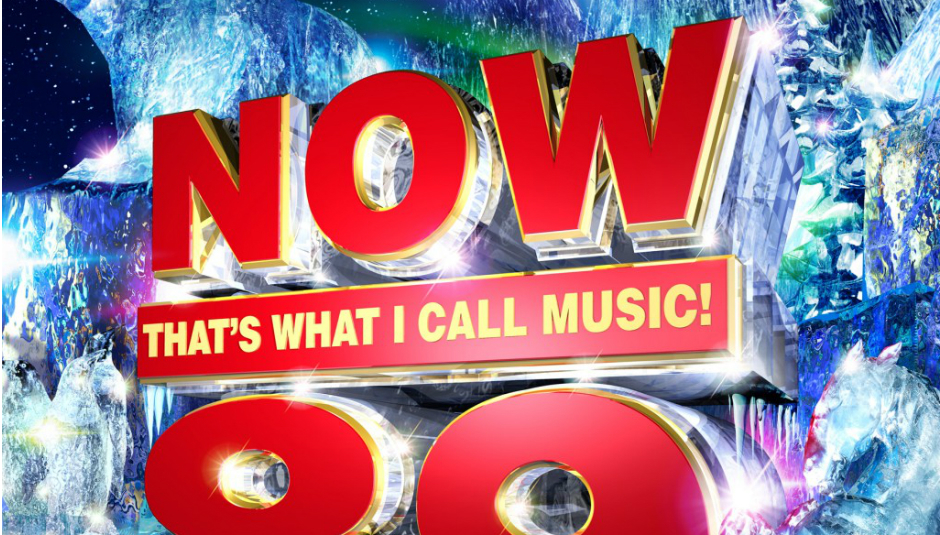Hello and welcome to a special edition of DiS Does Singles. To celebrate today's release of NOW That's What I Call Music! 89, we've curated some mini-essays on its tracklisting of smash hits. Because why the hell not?
Read on for our in-depth and occasionally serious takes on...
- Teaching English with Charli XCX
- The hollow triumph of Hozier’s 'Take Me To Church'
- An argument for Steal My Girl as the apex of Pop Music
- Calvin Harris: king of the UK Top 40… and Las Vegas
- Nicki, Meghan and reasons to be body positive
- Who the hell is still propping up Tom Odell?
Teaching English with Charli XCX
James Skinner
Kids and teenagers, with their shifting tastes and fluctuating moods, can be a tricky prospect at times. It’s at a young age when fandom is at its most gloriously unabashed, though, and that can be genuinely inspiring.
This summer I taught a group of unfeasibly bright 15-year-olds, all on course to pass the Cambridge Advanced English exam. We had class every morning for five weeks, during which time I made worksheets based on Conor Oberst songs and they tried to make me take up running. One thing they gave an unanimous thumbs-up was The Fault In Our Stars, John Green’s enormously successful young adult novel. That might be underselling it a little, actually: they absolutely, unconditionally adored it.
Of course, the phenomenon that is the book became a phenomenon of a film which boasted a phenomenon of a hit in Charli XCX’s ‘Boom Clap’. Since returning to work for the autumn-winter term, I’ve played it an uncountable number of times in the classroom.
That’s mainly been with my kids, but with my teenagers and adults, too. I must have done over a hundred songs with my classes at this point, but I don’t think any have resonated with the younger ones as much as ‘Boom Clap’. They love it, and while I have to pretend to some that I’ve forgotten a vague promise of Skrillex or Justin Bieber or ‘Anaconda’ or whatever, when we’ve done Charli they’ve been all over it, too.
Because it’s basically a perfect pop song. It’s almost exactly three minutes in length. The chorus is brilliant. Its lyrics are kind of dumb, but kind of clever, too. The brio with which they’re delivered belies a tinge of melancholy that suits the film perfectly, but for the most part it’s concerned with the giddy euphoria of infatuation making way for something more real and immeasurably more wonderful. There’s nothing exploitative here; no crass sexualisation, no mindless beats.
Their passions may fall more easily into the all-consuming variety, but kids and teenagers are pretty savvy. I have no doubt that it is the honesty and emotional intelligence - and very much the romance - that they respond to in a story like The Fault In Our Stars, or a song like ‘Boom Clap’. If you haven’t fallen for it yet, you should probably take their lead.
The hollow triumph of Hozier’s 'Take Me To Church'
Dave Hanratty
Let us first give thanks and praise. "My lover's got humour, she's the giggle at a funeral" is an exquisite line. It's also the only real glimpse of the human condition offered up by Andrew Hozier-Byrne on 'Take Me To Church', a baroque waltz that goes big on earnestness and pretension. It is a song comprised of both love and hate, anchored with skilfully-arranged gloom and flowery prose. It is, apparently, a rebellion against archaic institutions, precise propaganda, and "offensive, backward, barbaric" oppressions preached and practiced. It is, after many, many listens, quite hollow.
The foundations are solid and the chorus is such a delicious hook that Hellraiser's poster boy might even blush but the overarching feeling is that of a weightless procession. Emotions are prodded and poked rather than teased out. A to-the-heavens refrain of "Amen" aims for ironic detachment but registers as one garish punch too many. A fine pop song struggles to breathe. Conviction is vital but sorely absent.
Its accompanying black-and-white shot promo deals, effectively, with the persecution of the LGBT community but never feels all that connected to song or singer. There is the sense that it was carefully constructed in order to go viral. Perhaps not. Perhaps the intention is pure. A year and three months on from its delivery, Hozier stands as more machine than man, the might of marketing and industry power firmly behind this new prince of pop culture, the man behind the words moving further away. The comparisons to Jeff Buckley, Nick Cave and Van Morrison continue to enter the conversation. They are, frankly, hysterical.
These days, it only takes one song. One song to make you, one to break you. 'Take Me To Church' tells us little that we haven't heard before. As employment of glamour, it is triumphant. As a statement of character, it is blank. The sheep have been duly shepherded, the masses brought in line, the signal swallowed whole. Sound familiar?
An argument for 'Steal My Girl' as the apex
of Pop Music
Kate Solomon
Like the esteemed DiS reader, I am a Serious Music Fan who likes Serious Music and only Serious Music. So One Direction didn’t mean much to me until quite recently - it was two words with some haircuts attached. Something to do with X Factor maybe? Some bratty kid who kicked me off a picnic table once and a couple of guys smoking a spliff on a bus somewhere. Did one of them go out with Taylor Swift? They’ve had some songs and I’m sure I’ve heard them but they flitted in and out of my brain without sticking around long enough to leave a mark. Not Serious enough, see?
But then one day, in the interests of equal opportunities and Being Able To Join In On Twitter, I decided to listen to One Direction’s 'Steal My Girl'. Whatever I was expecting, it was not to be hit in the face with a no-messing Meatloaf-style piano intro. It was not a stomping great pop tune about what sounds like a deeply unhealthy relationship. And I was definitely not expecting to want to know 1D’s names or their starsigns or to follow them around like a lovesick puppy. When 'Steal My Girl' comes on I want to listen to it again before it’s even finished playing. What is it about this song?
Well, to start with, it’s amazing. It’s got that nostalgic stadium rock thing going on - a bit of Bon Jovi here, a sprinkling of Journey there and a pinch of what I’m sure they intended to be Springsteenesque. It’s completely over the top and weirdly restrained all at once. And can we talk about that amazing bass slide just before the chorus? That alone is worth the 99p iTunes download.
Lately, pop music has become strangely alternative. Being into something really mainstream is somehow perceived as being niche; like we’ve gone so far through the alternative that we’ve come out on the other side and the other side is the pop music we were trying to escape in the first place. It’s not the listening-to-Britney-while-wearing-a-Deftones-t-shirt-gosh-aren’t-I-a-kook “irony” of a few years ago: it’s genuine musical appreciation. I think that’s partly because human beings are wonderful and ridiculous, and partly because pop music is wonderful and ridiculous, so is it crazy to think that the wonderful, ridiculous 'Steal My Girl' could be its apex? And can we ignore the troubling lyrics of the song? Of course we can, guys. Because have you heard it? It’s amazing.
Calvin Harris: king of the UK Top 40… and Las Vegas
Rob Leedham
If you’re wondering how big Calvin Harris is right now, the answer is at least five-stories tall.
When the DJ played Las Vegas last NYE, the MGM Grand made a gargantuan ad hoarding in his honour. If you took a cab from McCarran International Airport to the Strip, the Scotsman’s gaze was unavoidable. You’d clock him peering over his EDM dominion with a headline slot booked at the $200 million Hakkasan nightclub.
Things were a little more low key for the launch of Harris’ fourth album, Motion, last month. He stuck with hiring a fleet of taxis across London, Manchester and Glasgow to give clubbers a free ride around the cities. Of course, his new record was the mandatory soundtrack to their journey.
It was ‘We Found Love’ that propelled the former Marks & Spencer shelf stacker towards this global ubiquity. That dizzy pop classic was the final refinement of a formula Harris had been working on for four years. The kitsch witticisms of ‘Acceptable In The 80s’ and ‘Dance Wiv Me’ had been replaced with a huge, super-charged thud that swells back and forth in constant revelry. ‘Blame’ follows this template to the letter with one key exception: it has neo-soulster John Newman on lead vocals instead of a female alternative.
“A good, soaring, high-mid female vocal bounces off the walls nicely, and it doesn't interfere with the bass or drumbeat,” Calvin explained to The Guardian in 2012. “It's basic science. A man's voice is likely to interfere with the bassline which is why you don't hear many classic dance tracks with a male lead.”
You can hear this philosophy in effect on the Kelis-featuring ‘Bounce’ or during Florence Welch’s nasal turn on ‘Sweet Nothing’. It’s the same trick that David Guetta pioneered in the late noughties allowing him to set up permanent shop in the UK charts. With ‘Blame’, Harris can afford to deviate from the blueprint because he’s become the JP Morgan of dance music - an immovable institution. It’s been four years and 12 singles since one of his singles missed out on a Top 10 placement.
So when does this reign end? Not anytime soon. Harris’ rise was initially tied to guitar music’s decline, but that’s turned out to be wishful thinking. Royal Blood, You Me At Six and Bombay Bicycle Club have all had Number 1 albums this year and none of them have featured on a NOW album. Meanwhile a whole ecosystem of dayglo ravesters, from DJ Fresh to Duke Dumont, have sprung up to fill the rock ‘n’ roll void. When it comes to pulling in guest vocalists and sheer financial clout, one act still towers above the rest.
Go to Vegas this NYE and you’ll see him playing at Hakkasan again. Alternatively, just take a trip along Interstate 15. He’ll be there, staring down on you and the rest of Sin City.
Nicki, Meghan and reasons to be body positive
Joseph Rowan
Two huge musical talking points from this year, two different approaches to body positivity. Nicki Minaj recently dismissed ‘Anaconda’ as a “joke”, but admitted that she wanted to create a song that “embraced curvy women”. Even though the link between bass and large bottoms is somewhat ill-defined, there’s no doubt that Meghan Trainor’s ‘All About That Bass’ is a similar ode to ‘well-proportioned’ ladies.
If you had to pinpoint the most explosive moment in both songs, it would be their disparaging references to “skinny bitches”. Of the two musicians, Trainor seems to have been called out for this significantly more. “You’re still adhering to the beauty standards your lyrics purport to be against," wrote Jezebel’s Hillary Crosley of the Number 1 smash hit.
When you consider the full lyric in context, it’s possible to take a more forgiving view:
“I'm bringing booty back Go ahead and tell them skinny bitches that No, I'm just playing. I know you think you're fat But I'm here to tell ya Every inch of you is perfect from the bottom to the top”
To me, this is a commentary on the fact that even skinny girls are made to feel like they’re fat by pop culture’s weight obsession. Sure, it’s not an ideal line, but it’s likely been seized upon so much because the song is uplifting in tone. If anything, the main problem with its lyrics is that they frame acceptance through male desire, “Boys like a little more booty to hold at night.” As if you should only feel good about your body because it’s attractive to men.
Meanwhile, ‘Anaconda’ has been subjected to all sorts of accusations, largely centred around the huge amount of butt on display in the video. ‘Nicki Minaj is worse for young girls’ morals than Madonna ever was’ proclaimed a particularly apoplectic right-wing commentator. Minaj taking charge of her sexuality then, is apparently worse than the hordes of anonymous twerking girls in numerous other music videos. Lily Allen and Mastodon, I’m looking at you.
Regardless of both songs’ flaws, they’ve lead the way for body positivity in pop and that’s to be applauded. I wonder who’ll be next to follow suit and better their example.
Who the hell is still propping up Tom Odell?
Dom Gourlay
Rewind back to November 1983 when the first NOW came out and you'll find pop culture clashes all over the place. Duran Duran rubbed shoulders with The Cure, The Human League shared a billing with Rod Stewart and Culture Club revealed themselves to be the biggest band of the day - they had two numbers on the thirty-song compilation.
Thanks to the samey state of the UK Top 40, NOW 89’s tracklisting is a smorgasbord of bland commodities churned out for mass approval. Take Tom Odell's mind numbingly dull cover of The Beatles 'Real Love' for example. It's the soundtrack to this year's John Lewis Christmas advert, adding its wretched presence to a lengthy festive shitlist. This includes Lily Allen’s butchering of 'Somewhere Only We Know', Ellie Goulding's sickly take on Sir Elton's 'Your Song' and Slow Moving Millie’s rejigging of 'Please Please Please Let Me Get What I Want' into a dinner party anthem.
But then why wouldn’t Odell find himself in such refined company? He’s been propped up by the music industry ever since emerging at the tail end of 2012. Signed by a subsidiary of Columbia Records on the recommendation of a tone deaf Lily Allen, who apparently likened him to David Bowie, the honky tonk songwriter has had several prestigious awards bestowed upon him. BRIT Awards Critics’ Choice 2013 - check. Ivor Novello Awards’ Songwriter of the Year 2014 - check.
Yet despite such grandiose accolades, his record sales have hardly been booming. Singing the accompanying ditty to a John Lewis Christmas advert would normally guarantee chart topping success, but 'Real Love' has stalled at the not-bad-but-could-do-better ignominy of Number Seven. His last single before that, ‘I Know’, hit the grand heights of Number 92. Meanwhile, Odell’s headline slot at Nottingham's biggest outdoor musical event Splendour coincided with its lowest ticket sales since the festival began.
The moral of the story? Let's hope the John Lewis marketing team see sense and ask Whitehouse or A Place To Bury Strangers perform their song next year, preferably alongside images of Santa Claus being beheaded by a herd of reindeer high on prozac and absinthe. Whatever happens, let the failure of Tom Odell be a lesson to everyone involved with his turgid career. You can’t make a hit artist, no matter how hard you try.
DiS Does Singles returns on 8th December with our staff poll of the Top 40 Songs of 2014. For a sneak peak of what might make the list, check out the 100 song Spotify playlist we've been compiling throughout this year…






















